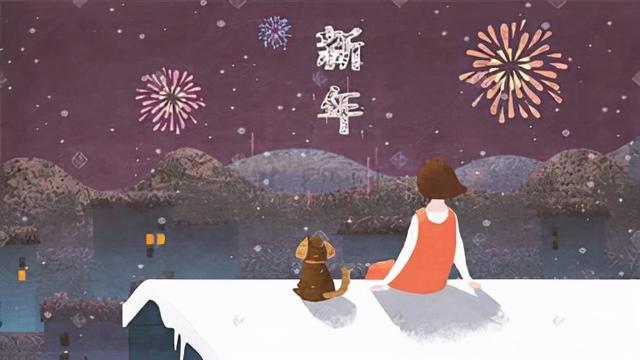"Source of this article: Shanghai Rule of Law Newspaper"
New Year’s Day, that is, January 1st of the Gregorian calendar, is commonly known as "New Year" in most countries in the world. Yuan means "beginning", and the beginning of every number is called "yuan"; Dan means "day"; "New Year’s Day" means "the first day".
"New Year’s Day" usually refers to the first day of the first month in the calendar. In China, the word "New Year’s Day" has existed since ancient times, and it was first seen in the Book of Jin in literary works. "New Year’s Day" in Chinese history refers to "the first day of the first month", and the calculation method of "the first month" was very inconsistent before the period of Emperor Wu of the Han Dynasty, and the dates of New Year’s Day (the first day of the first month) in previous dynasties were not consistent.

Lunar calendar start date
In the history of China, "the first day of the first month" has many appellations, such as New Year’s Day, Yuanri, Yuanzheng, Yuanchen, Shangri, Yuanshuo, etc., but among many appellations, "New Year’s Day" is the most common and the longest.
The calculation method of "the first month" was also very inconsistent before the period of Emperor Wu of the Han Dynasty. Therefore, the new year’s day of the past dynasties is not consistent. The first month of the summer calendar in summer is spring January, the first month of the Yin calendar in Shang Dynasty is winter December, and the first month of the Zhou calendar is winter November. After Qin Shihuang unified China, October was the first month, that is, the first day of October was New Year’s Day. Since Emperor Wu of the Han Dynasty, it has been stipulated that January in spring is the first month, and the first day of January is called New Year’s Day, which has been used until the end of the Qing Dynasty.
The first day of the first month was called Yuan Zheng in Cui Yuan’s Ming of the Third Son of Chai in Han Dynasty, Yuan Chen in Yu’s Fu of Yangdu in Jin Dynasty, Yuan Chun in Yuan Hui’s Song of the Emperor in Summer in Northern Qi Dynasty, and Yuan Shuo in Tang Dezong’s poem Li Shi’s Returning from the Yuan Dynasty to Watch the Army Battle and Return to Camp.
The beginning of the solar calendar
In 1911, the Revolution of 1911 led by Sun Yat-sen overthrew the rule of the Manchu Dynasty and established the Republic of China. In order to "follow the agricultural season, follow the western calendar, and make statistics", the first year of the Republic of China decided to use the Gregorian calendar (actually used in 1912) and stipulated that January 1 of the Gregorian calendar was called "New Year’s Day", but it was not called "New Year’s Day".
Representatives of provincial governors met in Nanjing and decided to use the Gregorian calendar, calling the first day of the first month of the lunar calendar "Spring Festival" and the first day of January of the Gregorian calendar "New Year’s Day", but it was not officially announced at that time.
On January 1, 1912, the Republic of China was proclaimed, and Sun Yat-sen took office as interim president in Nanjing. In his oath of office, Sun Yat-sen ended with "New Year’s Day of the first year of the Republic of China". This is the origin of "New Year’s Day" in China.
On September 27th, 1949, the first China People’s Political Consultative Conference decided to establish the People’s Republic of China (PRC), and at the same time, it also decided to adopt the universal method of the year, that is, the solar calendar. New Year’s Day refers to the first day of the first year of the year.
In order to distinguish the two New Years, the first day of the first month in the summer calendar is just before and after the "beginning of spring" in the 24 solar terms. Therefore, the first day of the first month in the summer calendar was renamed as "Spring Festival", and the first day of the first month in the Gregorian calendar was designated as the beginning of the new year-"New Year’s Day", which was listed as a legal holiday and became a national holiday.
January 1st every year marks the arrival of a new year. People are used to calling this day "New Year’s Day", commonly known as "Gregorian Year", "Gregorian Year" or "New Calendar Year".
Festival culture
Modern New Year’s Day is listed as a legal holiday by the China government, which has become a national holiday. After a day off, we often adjust the weekend before or after that day, and generally rest for three days in a row. The celebration of New Year’s Day in modern China is much less important than the Spring Festival.
Comprehensive arrangement from Baidu Encyclopedia and Sanlian Life Weekly, etc.
Reporting/feedback